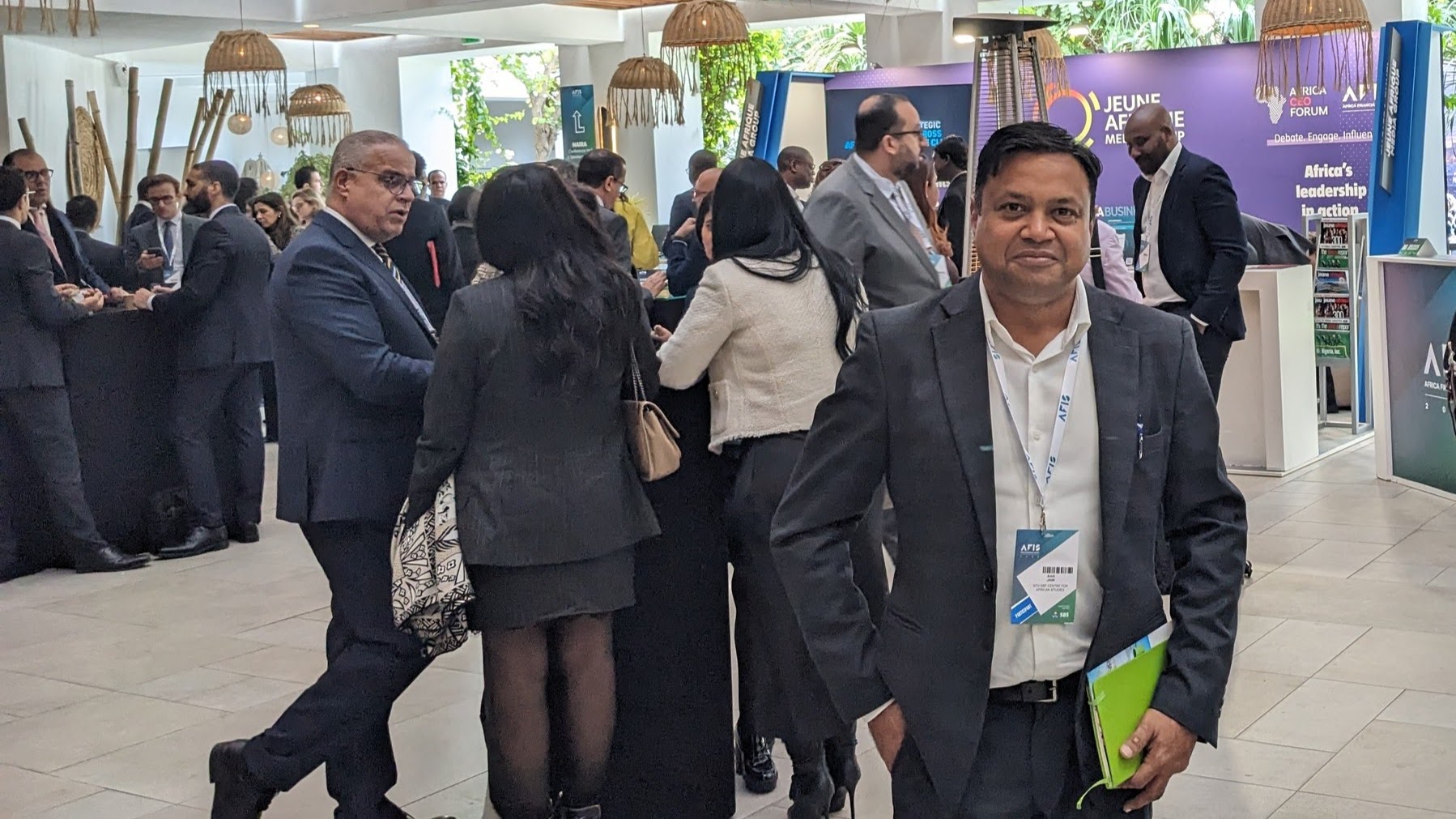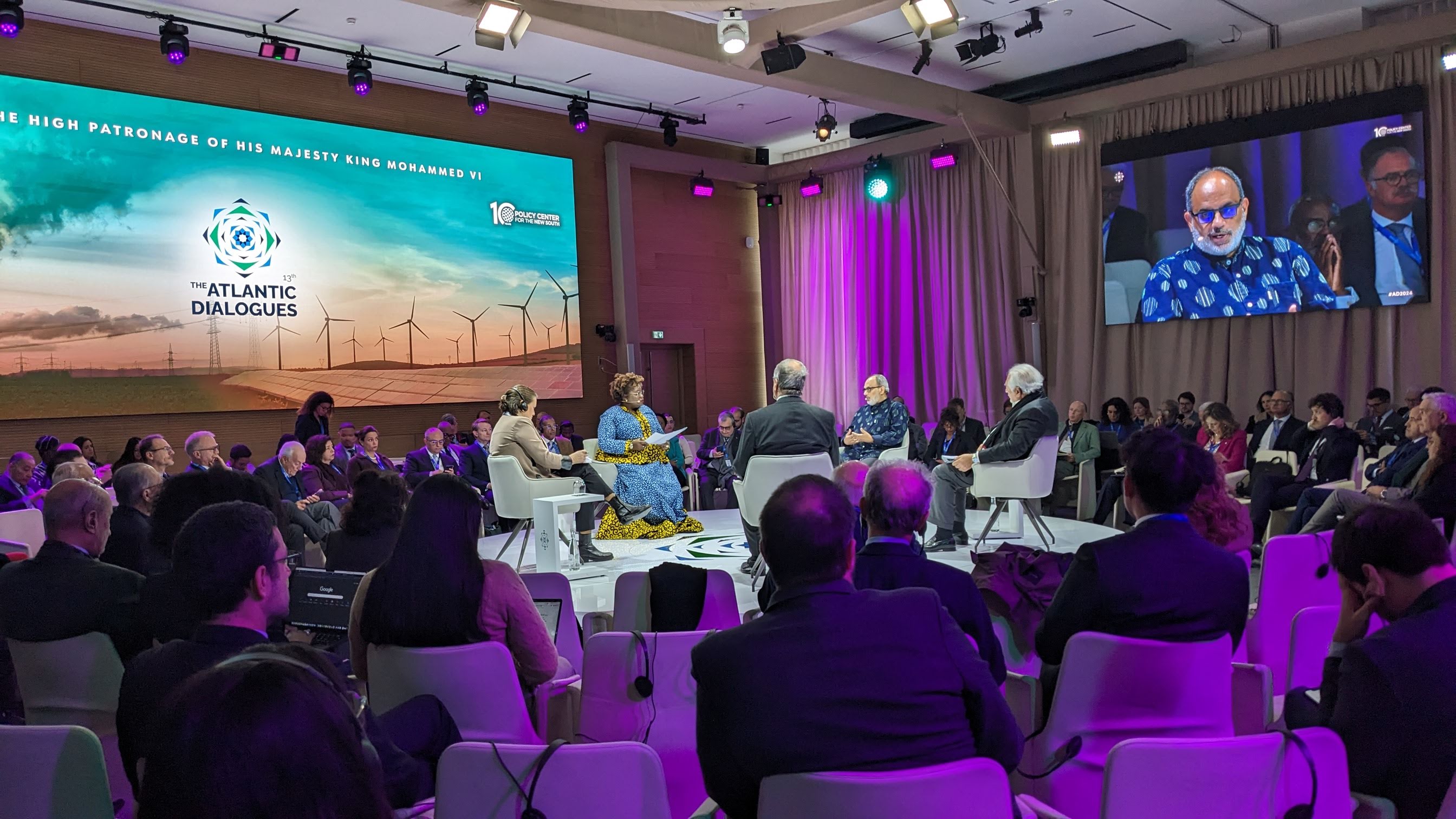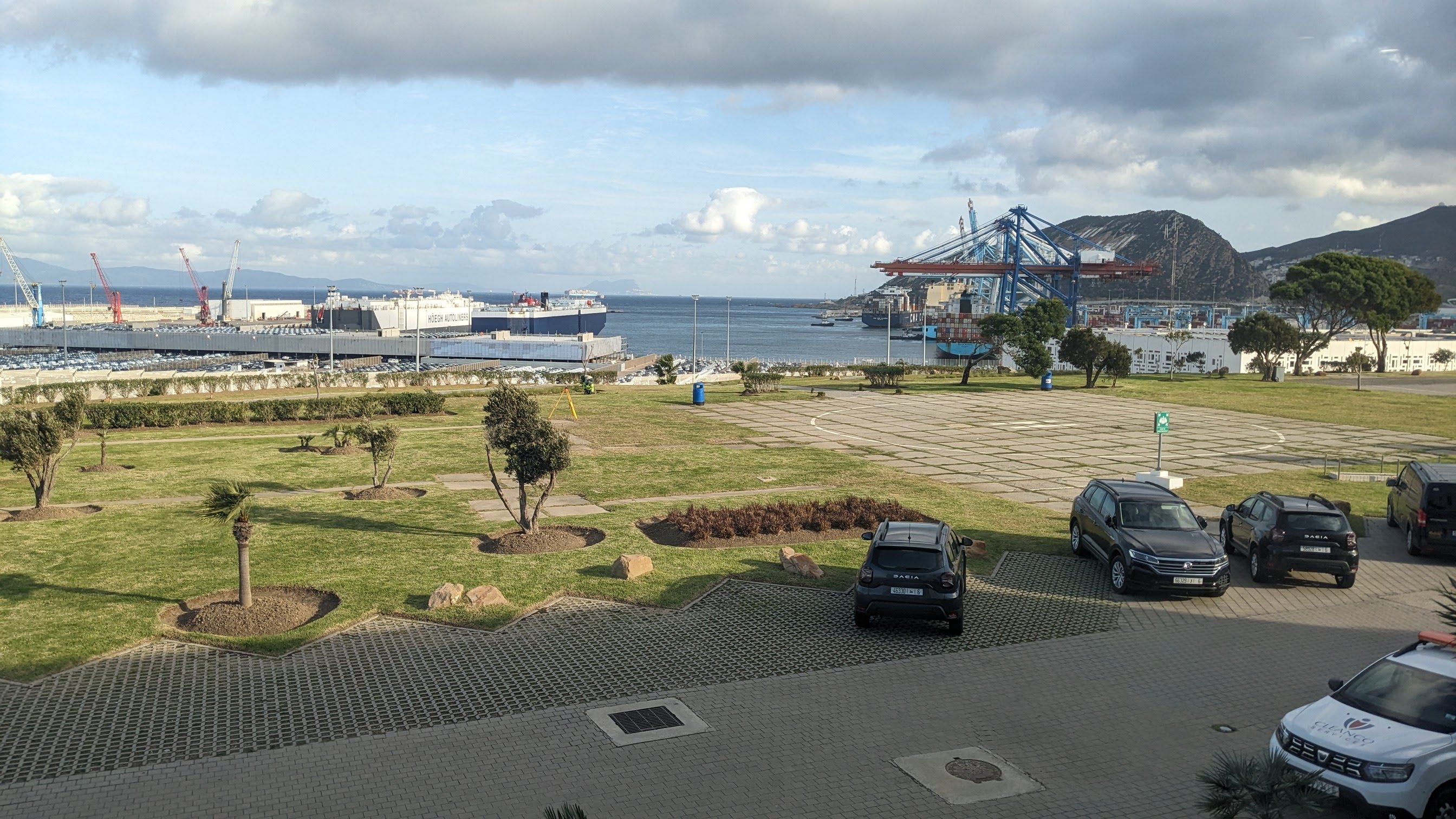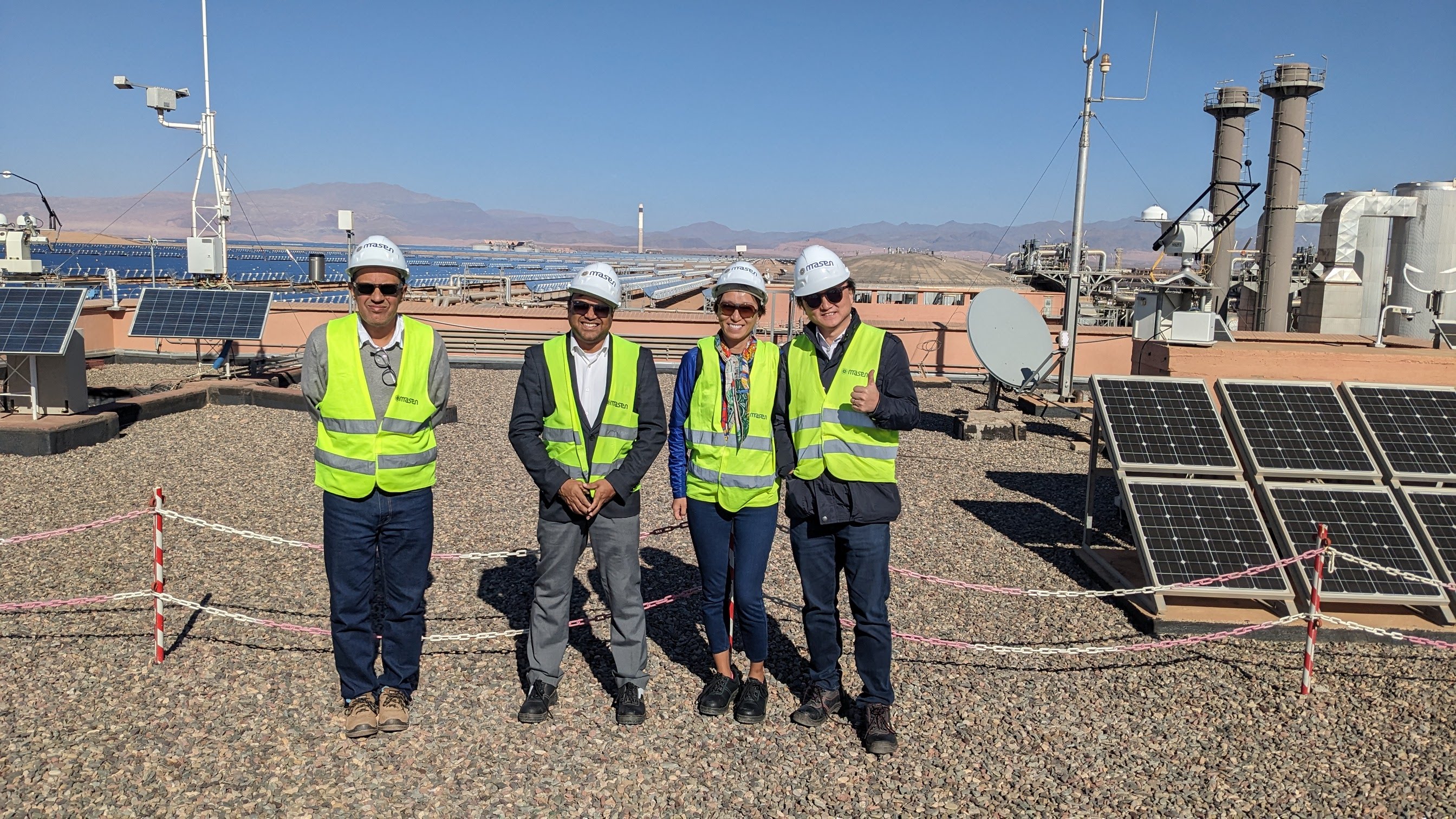Centre Director goes to Morocco on a marathon mission
Amit Jain participates in four consecutive high-level engagements and visits critical port and energy infrastructure
In an unusually intense marathon exercise the Director of the NTU-SBF Centre for African Studies visited Morocco this month on a four-stage, two and half week back-to-back official engagement.
AIF
 Amit Jain in front of Africa Investment Forum sign.
Amit Jain in front of Africa Investment Forum sign.
The first leg of the multi-city engagement the three-day Africa Investment Forum in Rabat that saw over 1700 international investors sign US$29.5bn worth of deals covering energy, transport, agribusiness, mining, manufacturing and infrastructure projects. The well organised highly choreographed gathering which is the flagship investment meeting of the African Development Bank (AFDB) this time attracted an unprecedented number of investors from Asia (India, China and Japan - in particular). The NTU-SBF Centre for African Studies, whose work informs decision-makers on the economic direction of the continent, was the only think tank in Asia to be invited for the conference. Amit attended a series of closed-door boardroom meetings which provided him a seat at the table where project sponsors pitched for project funding. Such opportunities provide the Centre to produce cutting edge research and produce actionable advisories. For example, contrary to common perception the risk of default on infrastructure projects is the lowest in Africa – lower even than in Asia. A recent industry survey shows that more than half the private equity investors believe that within five years Africa will become more attractive for private capital inflows than other emerging markets. Collectively, the continent is already equivalent to India in the size of its economy and population. By 2050 one in every four will be an African.
The AIF was also an excellent networking event. Among those attending were Chief Executive Officers and Presidents of top international development banks, Heads of States, Finance and Economy Ministers as well as top private sector investors. Dr Akinwumi Adesina, who is has led the AFDB for over a decade was given the African of the Decade award by the All-Africa Business Leaders Association. He widely admired for his work in mobilising investments across the continent and has been often dubbed as Africa’s ‘optimist-in-chief’. “God did not make a mistake when he made me an African… I will do all I can, to my final breath, for Africa,” he vowed as he accepted the award. He is expected to step down in 2025.
AFIS
 Amit Jain at the Africa Financial Industry Summit.
Amit Jain at the Africa Financial Industry Summit.
The next leg of Centre Director’s engagement was the Africa Financial Industry Summit (AFIS), which took place in the buzzy commercial city of Casablanca. The two-day conference was organised by Juene Afrique – a leading business publication best known for its monthly - The Africa Report. The fourth edition of the AFIS showcased more than 30 high-level panels and roundtables all dedicated to discussing reforms and actions required to the expansion and deepening of the financial sector in Africa and reducing financing costs. From new banking products to capital market solutions experts discussed a wide range of technical and policy issues covering cross-border local currency settlement, capital adequacy requirements, digitising insurance and banking services, and the establishment of a pan-African stock market. Such topics are routinely explored and explained by the NTU-SBF Centre for African Studies. The financial sector of Africa has undergone a dramatic transformation. As foreign banks have exited, they have been replaced by a new breed of more ambitious, innovative and ‘hungrier’ local banks – many of whom have crossed boundaries and have now become pan-African international banks. Nigeria’s Access Bank has purchased several subsidiaries of the British bank Standard Chartered. Similarly, Ouagadougou-based Coris Bank has acquired Standard Chartered branches and certain African subsidiaries of Société Générale in Burkina Faso. Togo-headquartered Ecobank has emerged as a leading pan-African bank that offers a range of services, including retail, wholesale, investment, and transaction banking with more than 1,200 branches spread over 36 African countries. The private sector arm of the World Bank, IFC, has invested a record US$3.2bn in Africa’s financial sector — a figure set to rise as the African Continental Free Trade Area (AfCFTA) moves forward. But despite such resilience the financial sector in Africa remains hamstrung by high rates of interest, currency volatility and weak undeveloped and illiquid capital markets. Amit Jain explains this problem in this podcast. The event served as an enriching learning and knowledge gathering exercise, which will eventually feed into the Centre’s work. Much like the AIF it was also an enriching networking opportunity which helps raises the international profile of the NTU-SBF Centre for African Studies. Attendees included central bank governors, bankers, financiers and development finance partners of African states.
Atlantic Dialogues
 Discussion of speakers at the Atlantic Dialogues.
Discussion of speakers at the Atlantic Dialogues.
Once the AFIS concluded Amit Jain returned to Rabat for the Atlantic Dialogues where international academics, thinkers, policymakers and researchers discuss matters of international security, economic sovereignty, and geopolitics that impact Africa and the broader Atlantic community of nations. The annual symposium organised by the Policy Centre for the New South is held under the patronage of His Majesty King Mohammed VI. The conference this year saw the launch of the 11th edition of Atlantic Currents – an academic journal that looks at shifting geopolitical dynamics across the Atlantic basin. The symposium, which included plenary sessions, breakout dinners, and a series of small gathering ‘night owl’ sessions touched upon a diverse range of subjects including energy transition, resilience of democracy, difference of perspectives between the Global North (richer Western countries) and the Global South (developing countries) and emerging security challenges. The discussion this year was dominated by conflict in the middle east and the looming threat of a global trade war between US and China. More than 400 delegates participated in the conference including a group of young change-makers who are selected each year by the Policy Centre to come to Morocco for a week-long workshop and knowledge sharing exercise under the Atlantic Dialogues Emerging Leaders programme.
UM6P and more
 Prof Simba Chang and Amit Jain in front of UM6P sign.
Prof Simba Chang and Amit Jain in front of UM6P sign.
Associate Dean for Research Prof Simba Chang later joined Centre Director Amit Jain for an official visit to the Africa Business School at King Mohammed VI Polytechnic University (UM6P). Find out more about that visit here. They also visited the Tanger Med Port Complex in Tangier. The 9 MTEU capacity port is among the most modern container ports in the world and ranks higher than Port of Singapore in performance efficiency. They were also given a tour of the showcase 580MW Noor Ouarzazate solar power complex. It is spread over 3000 hectares and located in a dry desert region of Morocco. The Kingdom has made notable strides in harnessing the power of wind and solar energy and laid out ambitious plans for transiting out of fossil fuels.
 Tanger Med Port Complex.
Tanger Med Port Complex.
 Prof Simba Chang and Amit Jain at the Noor Ouarzazate solar power complex.
Prof Simba Chang and Amit Jain at the Noor Ouarzazate solar power complex.















/enri-thumbnails/careeropportunities1f0caf1c-a12d-479c-be7c-3c04e085c617.tmb-mega-menu.jpg?Culture=en&sfvrsn=d7261e3b_1)

/cradle-thumbnails/research-capabilities1516d0ba63aa44f0b4ee77a8c05263b2.tmb-mega-menu.jpg?Culture=en&sfvrsn=1bc94f8_1)







